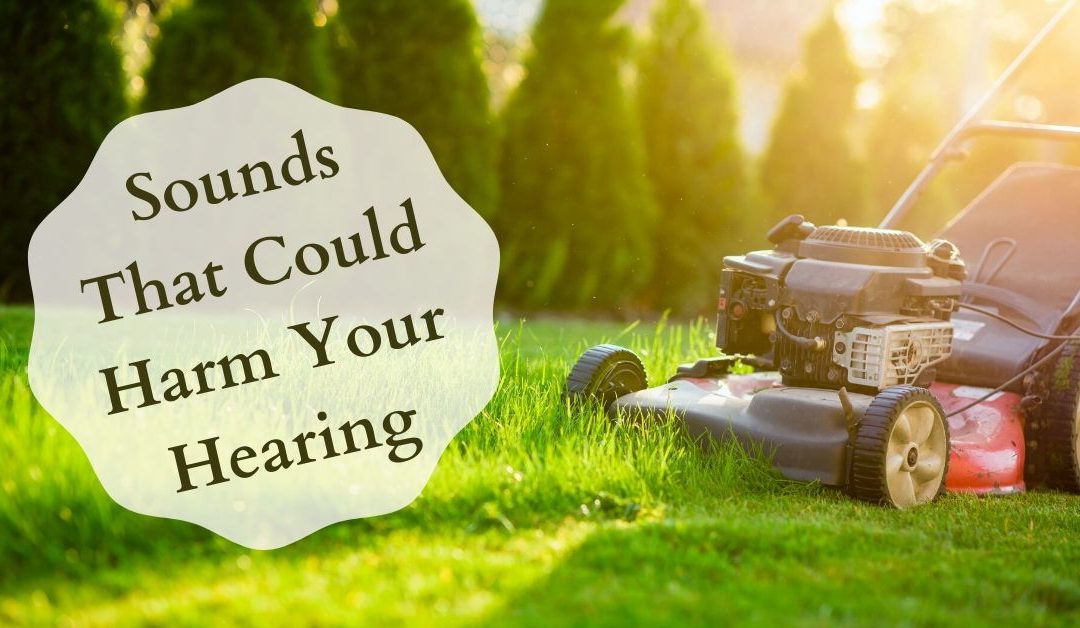Noise induced hearing loss is one of the most common kinds of hearing loss. Adults, teens, and even children can have noise induced hearing loss. Here’s everything you need to know about decibels, and some of the sounds that could harm your hearing.
What is Noise Induced Hearing Loss?
Hearing loss can be part of the normal aging process, or it can be caused by an illness or head injury. Very loud sounds can also cause hearing loss. With prolonged exposure to loud noise, over the span of years, noise induced hearing loss could develop. On the other hand, a single event that exposes you to extremely loud noise (fireworks, explosions, etc.) could also lead to noise induced hearing loss.
When you’re exposed to extremely loud noise, the cells in your inner ear are damaged. Once these cells are damaged, you won’t be able to hear all the sounds in your environment, and you may not hear sounds in high frequencies. Sounds that could harm your hearing are sounds louder than 85 decibels (dB).
Sounds that are 85 dB will damage your hearing in a few hours, while sounds that are 140 dB could damage your hearing in just a few seconds. Repeated exposure to loud sounds also increases your risk of hearing loss, and if you’re around loud sounds every day, you’re more likely to suffer from hearing loss.
Sounds That Could Harm Your Hearing
To help you look after your hearing health, and know when to protect your hearing, these are some of the sounds that can harm your hearing:
- Hairdryer: Did you know your morning hair routine could be damaging your hearing? Hairdryers can be between 80 to 100 dB, and this can harm your hearing. Find a hair dryer that’s listed as being “quiet” and run your hairdryer at medium speed to lower the noise.
- Heavy Machinery: The garage truck that rumbles by once a week can be noisy. Most garbage trucks are between 85 to 100 dB. Machinery in the construction site you pass every day is also very loud, and can damage your hearing.
- Lawn Mower: Another loud piece of equipment is your lawn mower. Lawn mowers, leaf blowers, power sanders, and any other power tools you use around the yard can be noisy. These sounds are between 90 to 110 dB, so if you’re doing yard work, make sure you’re wearing hearing protection.
- Schools: The school your children attend could be very noisy. Kids running through the hallways at the end of the day, or eating lunch in the cafeteria can be extremely noisy. If you’re volunteering at the school, you could hear sounds of 100 to 110 dB. Protect your hearing at the school, and avoid standing near bells.
- Motorcycles and Boats: If you enjoy riding motorcycles, taking the boat out for a spin, or riding a snowmobile or ATV, make sure you’re protecting your hearing. These vehicles can reach up to 110 dB, and even a few minutes on your bike will damage your hearing.
- Emergency Sirens: The sirens that go wailing by are between 110-120 dB. If an emergency vehicle stops near you, cover your ears to protect your hearing.
- Thunderclap: A thunderstorm right overhead can be extremely loud. A thunderclap can be 120 dB! Stay inside during storms to protect your hearing.
- Firearms: Shotguns, handguns, and rifles are extremely loud, and these sounds are between 140 to 175 dB. At this volume, one discharge can lead to permanent hearing loss. Make sure you’re always wearing hearing protection at the shooting range, and look into hearing protection for hunters.
- Fireworks: Another dangerously loud activity is watching fireworks. If you’re standing near the fireworks, sounds are from 150 to 175 dB. You need to wear hearing protection during fireworks shows, and make sure your family and friends are protecting their hearing.
Protect Your Hearing
If you are exposed to sounds over 85 dB, make sure you’re protecting your hearing. The louder the sound the sooner you’ll experience hearing loss, so be cautious around loud sounds, and protect your hearing. Repeated exposure can also affect your hearing, so if you’re around loud noises every day, do the right thing for your hearing health and wear hearing protection. Foam and wax earplugs can reduce sounds by 15 to 20 dB. Earmuffs reduce sounds by up to 30 dB, so if you’re exposed to extremely loud sounds, make sure you have earmuffs to protect your hearing.
To learn more about noise induced hearing loss and to get your hearing tested, contact us today.


